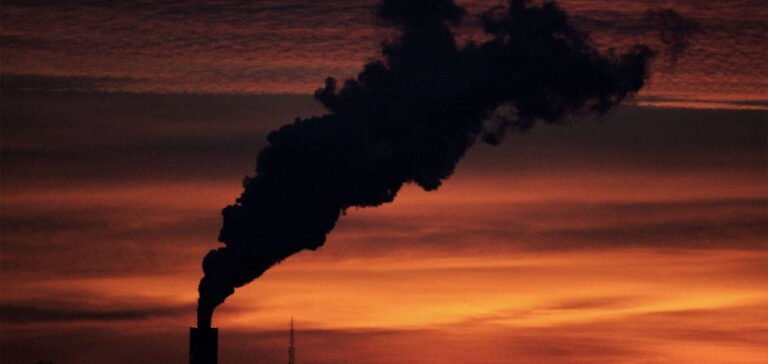For the eighth year in a row, French financial players will meet on Thursday at the Palais Brongniart in Paris to make new commitments in favor of the climate. But beyond words,
progress remains too modest to make a difference, experts say.
The Climate Finance Day (CFD) sees itself as a “catalyst for financial actors’ commitments to climate and sustainable finance”. But “the announcements have never been up to the climate emergency”, says Lorette Philippot, spokeswoman for Friends of the Earth, one of the NGOs that initiated an activist action that interrupted the previous edition.
“We all realize that we need to accelerate (…) it’s not going fast enough and it’s not going far enough,” acknowledges Pauline Becquey, CEO of Finance For Tomorrow, the event’s organizer. For Virginie Wauquiez and Laurent Morel, from the Carbone 4 consulting firm, even if finance is “neither ahead nor behind the economy”, two factors are worrying.
The first is the lack of human resources dedicated to measuring the CO2 emissions generated by the investments. They are much less than those devoted to the fight against money laundering or terrorist financing, they note.
– Shadow Finance –
The second is the multitude of “net zero” initiatives, in other words carbon neutrality, from banks, insurers or asset managers that “give the illusion that we are making progress” but without doing “the job”, they note.
“There is an unsustainable paradox between the urgency and the slowness of the implementation of the regulatory framework,” agrees Pierre-Alexandre Moussa, Head of Climate and Sustainable Finance at TP ICAP, the world’s leading brokerage and financial intermediation company.
It distinguishes between regulated players and “shadow banking”, which includes unregulated, virtually uncontrollable players.
Even within traditional finance, a quarter of the players are indifferent to climate issues, he estimates.
The others, who are more or less committed, “are recruiting and looking for climate expertise,” notes Anuschka Hilke of the Institute for Climate Economics (I4CE).
– “Schizophrenic system” –
On the NGO side, the commitments of French finance to abandon coal are often praised. On the other hand, investments in oil and gas are under fire, especially those of the French company TotalEnergies.
The banks are also being criticized for their support of this energy giant, arguing that their financing contributes to the energy transition of this group, which intends to develop its activities in renewable energy.
For the majority of experts, the brakes also come from the public authorities, several of them mentioning the subsidies to fossil fuels that blur the message on the energy transition.
“We are in a schizophrenic system with an economy addicted to fossil fuels,” said Mr. Moussa.
“Quite strong positions” had been taken by the Minister of Economy Bruno Le Maire, especially during the CFDs of the early days of the first quinquennium of Emmanuel Macron, but they remained dead letter, also regrets Lorette Philippot.
“The answer is going to have to be regulation”, initiated by governments and financial supervisory bodies, concludes Anuschka Hilke.






















